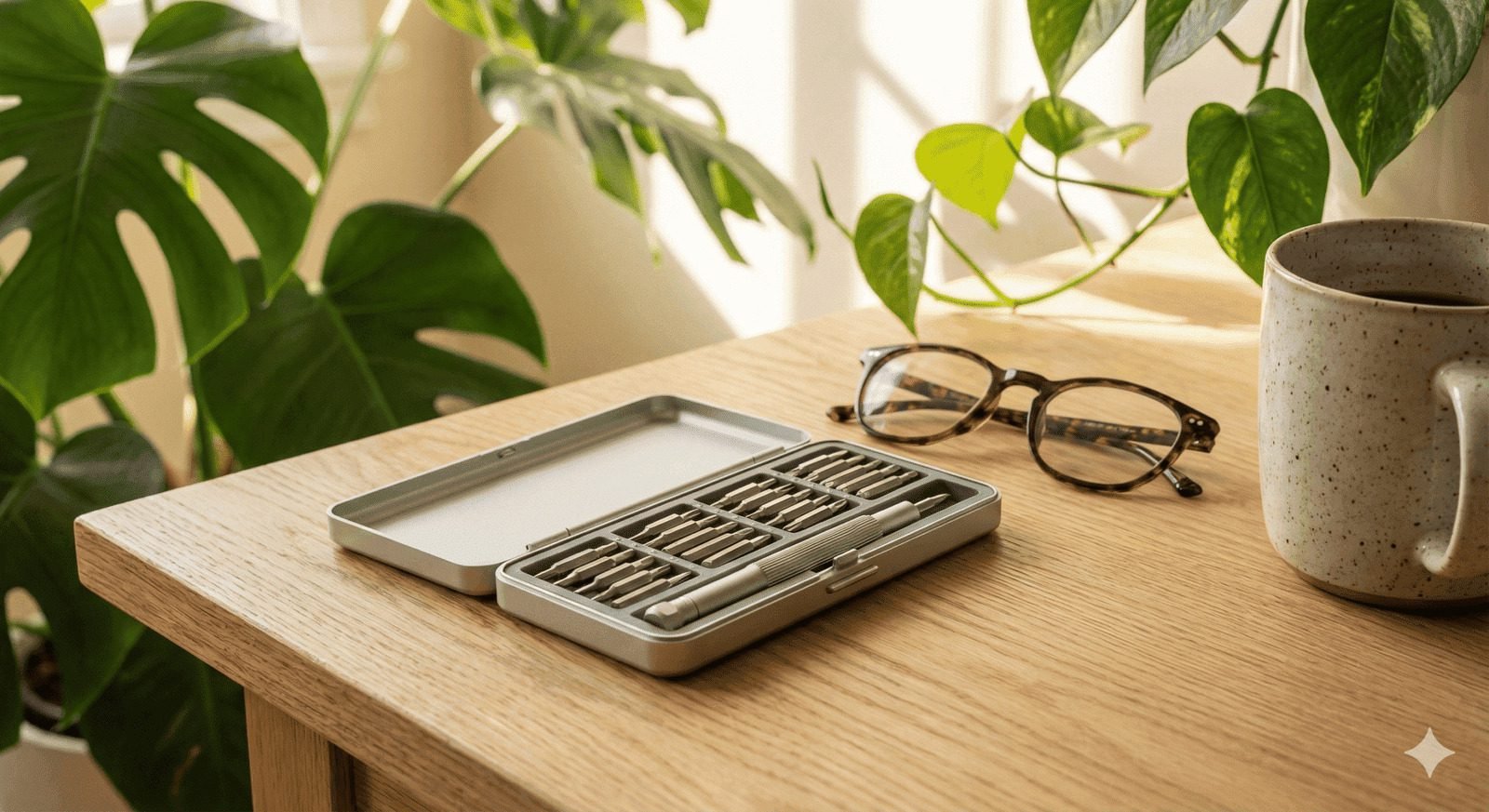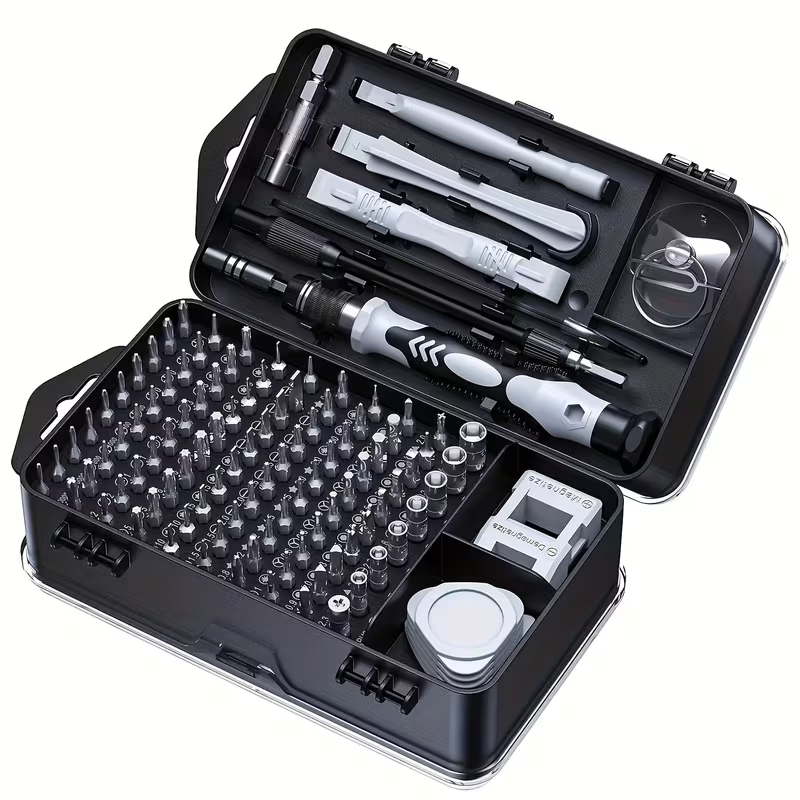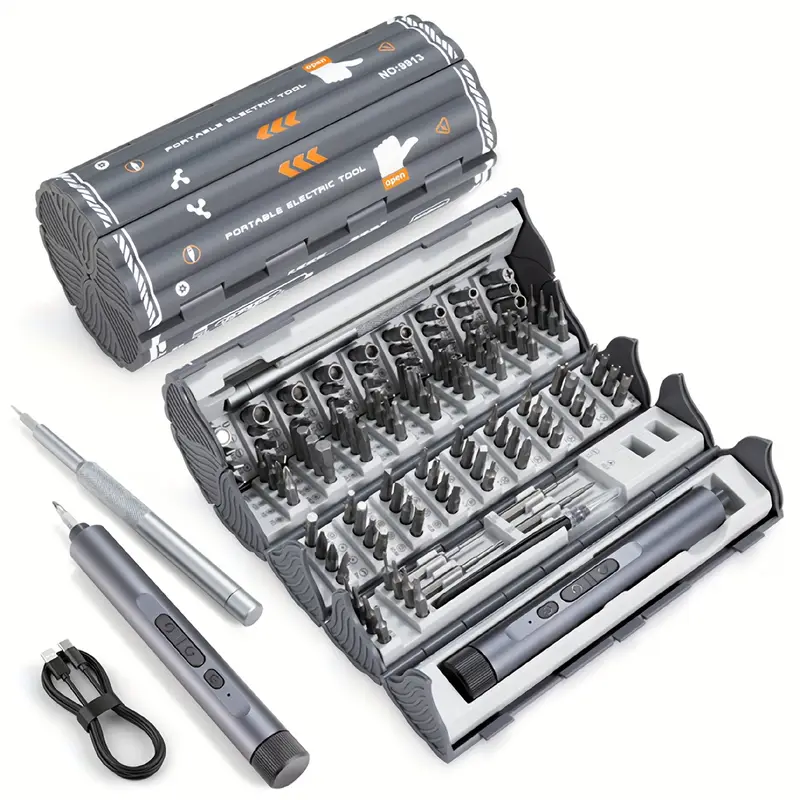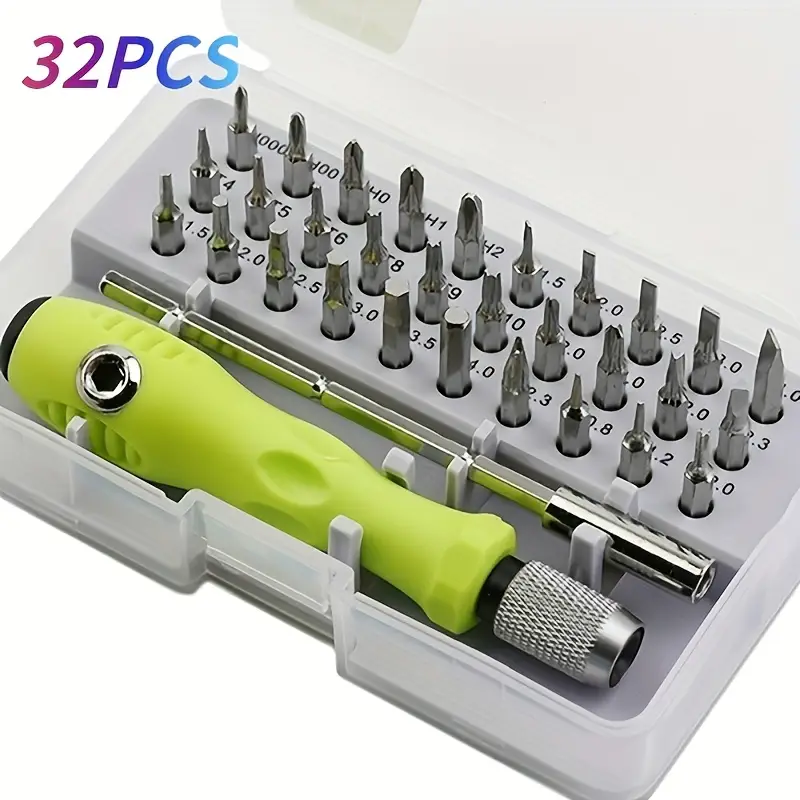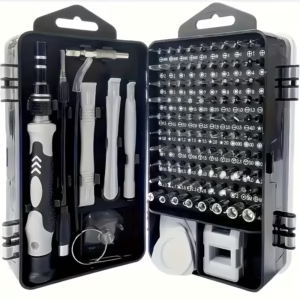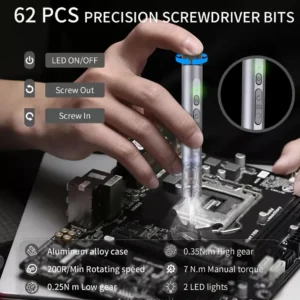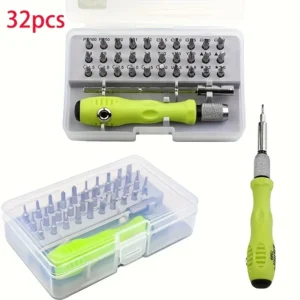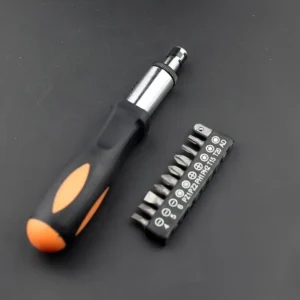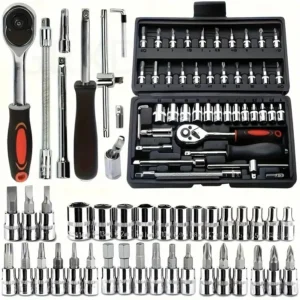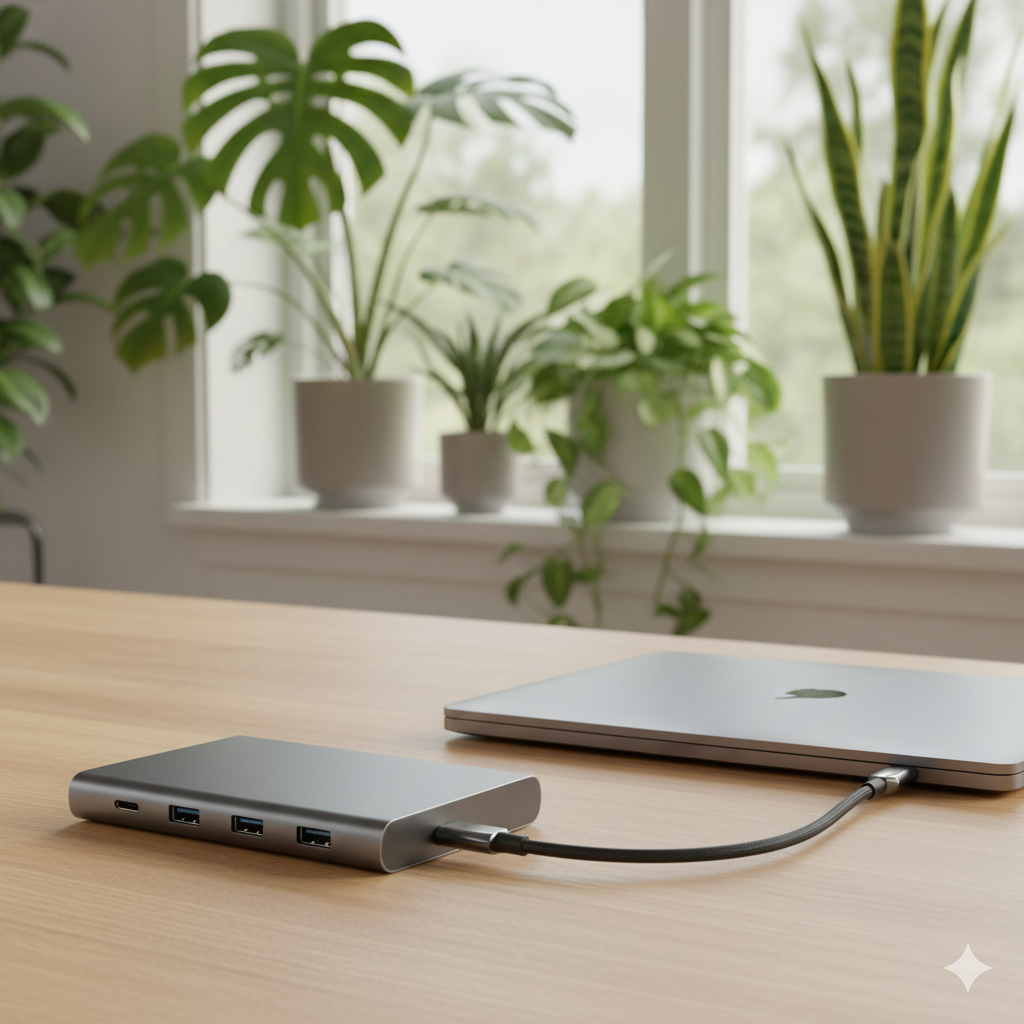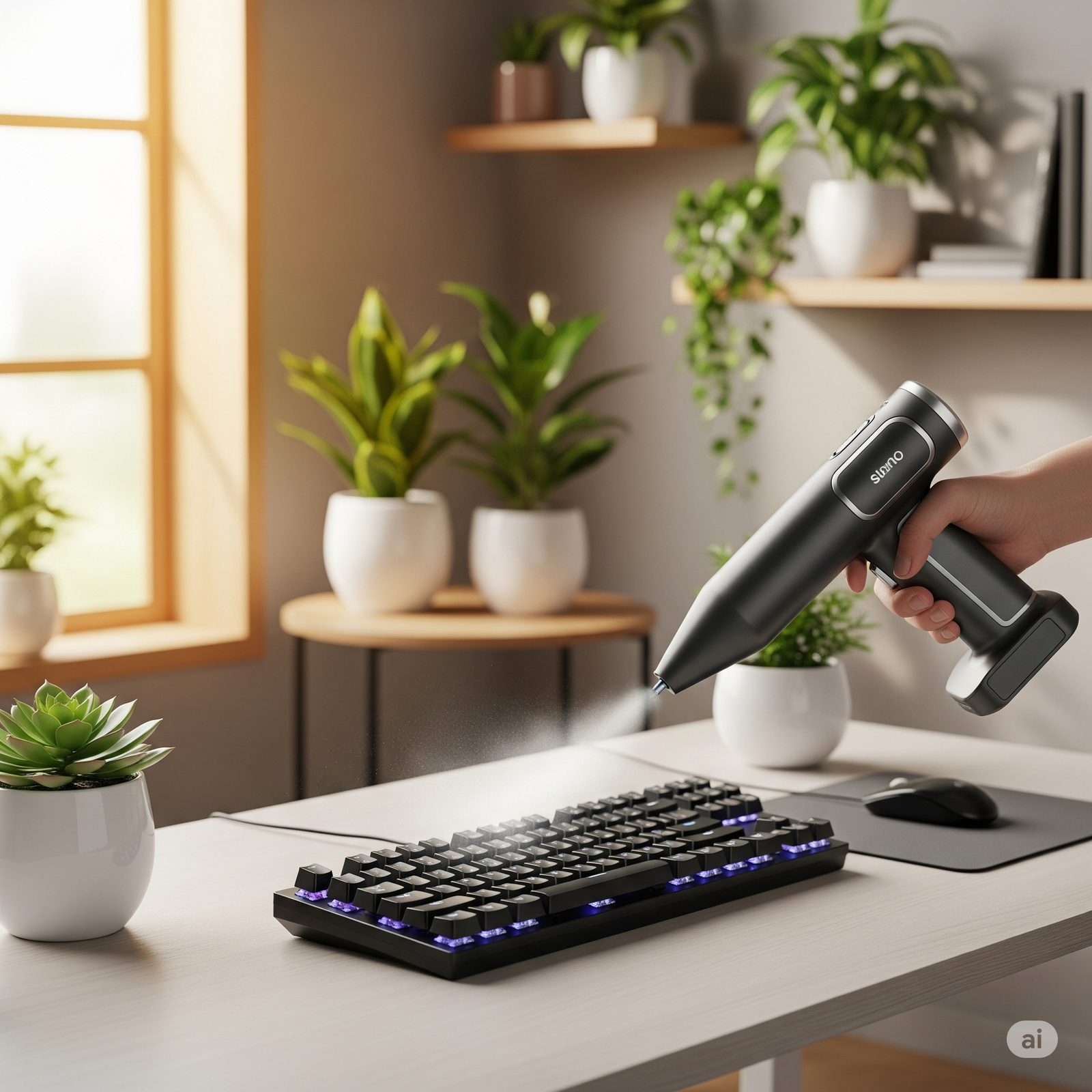Hi, I’m Joakim, and welcome to TopGadgetGuide.net. Anyone who has ever tried to open a modern electronic device—be it a smartphone, a laptop, or a gaming console—knows that a standard screwdriver just won’t cut it. A precision screwdriver kit is an absolute essential for any tech enthusiast or DIY repair hobbyist. After exploring the vast selection of kits on Temu, I’ve created this guide to break down the top 5 types, helping you find the perfect set for your next delicate project.
(Want to know how I review my gadgets? Read my full review process here.)
Comparison Table (Top 3 Picks)
Detailed Product Reviews
1. The All-in-One Electronics Repair Kit (100+ Pieces)
Our Top Pick: 115-in-1 Professional Magnetic Repair Tool Kit
Quick Specs:
- Bits: 100+ Precision Bits (CR-V Steel)
- Accessories: Spudgers, Tweezers, Suction Cup & Mat
- Handle: Manual with Flexible Extension
- Best For: Complete phone & laptop repair
Description: This is the ultimate toolkit for the serious hobbyist or professional. It goes far beyond just screwdriver bits, including a huge array of tools needed for electronics repair: spudgers (pry tools), suction cups for screens, anti-static wrist straps, tweezers, and a magnetic project mat. The screwdriver itself is often a high-quality manual handle with a flexible extension for hard-to-reach screws. When you have your device open, it’s the perfect time to clean out internal dust. Keep a can from my list of the [The 5 Best Air Dusters] handy to blow away debris before reassembling.
Pros:
- Includes every tool you could possibly need for most electronic repairs.
- Excellent value, as buying all the tools separately would be much more expensive.
- The included case keeps everything perfectly organized.
Cons:
- Can be overkill for someone who just needs a simple screwdriver.
- The sheer number of pieces can be overwhelming for a beginner.
Why it’s on this list: It’s the most comprehensive and value-packed solution for anyone serious about repairing phones, laptops, and other modern gadgets.
2. The Pen-Style Electric Precision Screwdriver
Our Top Pick: Cordless Electric Precision Driver with LED
Quick Specs:
- Power Source: Rechargeable Battery (USB)
- Torque: 0.2 – 0.35 N.m (Electric)
- Lighting: Built-in LED Work Light
- Best For: Speed & Reducing wrist fatigue
Description: For those who value speed and efficiency, an electric precision screwdriver is a game-changer. Shaped like a sleek pen, it features a small motor that does the turning for you, saving your wrists during projects with many tiny screws. They are typically rechargeable via USB and come with a curated selection of the most commonly used precision bits.
Pros:
- Dramatically speeds up disassembly and reassembly.
- Reduces wrist strain and fatigue on larger projects.
- Often includes built-in LED lights to illuminate your work area.
Cons:
- More expensive than manual sets.
- The low torque is safe for electronics but not suitable for larger, tighter screws.
- You’re dependent on the battery being charged.
Why it’s on this list: It’s the perfect choice for PC builders, modders, and anyone who frequently works with devices that have a high screw count.
3. The Classic Manual Precision Set (25-50 Pieces)
Our Top Pick: S2 Steel Magnetic Screwdriver Set
Quick Specs:
- Bit Count: 25-50 Essential Bits
- Handle: Spinning End Cap (for control)
- Material: Hardened Steel (S2 or CR-V)
- Best For: Tactile control & General precision
Description: This is the reliable and affordable standard. The kit typically features a comfortable, spinning-top manual screwdriver handle and a case filled with 25 to 50 of the most essential precision bits (Phillips, flathead, Torx, Pentalobe, etc.). It gives you the ultimate control over torque, allowing you to “feel” how tight a screw is, which is crucial for delicate components.
Pros:
- Very affordable and offers excellent value.
- Provides the best tactile feedback and control for delicate work.
- Compact and easy to store in a drawer or backpack.
Cons:
- Can be slow and tedious for projects with many screws.
- Lacks the extra repair tools found in larger kits.
Why it’s on this list: It’s the essential, must-have kit for any home. It’s affordable, reliable, and provides the control needed for occasional electronic repairs and adjustments. This set is also ideal for gamers who like to mod or repair their gear. It pairs perfectly if you are looking to upgrade one of the [The 5 Best Handheld Gaming Consoles].
4. The Budget-Friendly Mini Kit
Our Top Pick: Mini Pocket Precision Screwdriver Set
Quick Specs:
- Size: Pocket-sized / EDC
- Bit Selection: 10-15 Most Common Types
- Case: Simple Plastic or Wallet Style
- Best For: “Just-in-case” repairs & Glasses
Description: Sometimes you just need the basics. This is a small, pocket-sized kit, often in a simple plastic case, containing a basic handle and a handful (10-15) of the absolute most common precision bits. It’s the perfect “just-in-case” tool to throw in a bag or keep in your car for unexpected small repairs.
Pros:
- Extremely cheap and compact.
- Perfect for very simple tasks like changing batteries in a toy or tightening glasses.
- Small enough to be part of an everyday carry (EDC) kit.
Cons:
- Very limited selection of bits.
- The build quality of the handle and bits is usually lower.
Why it’s on this list: It’s the ideal, low-cost option for someone who only needs a precision screwdriver for the most basic and infrequent tasks.
5. The Ratcheting Precision Screwdriver
Our Top Pick: Multi-Purpose Ratcheting Driver Set
Quick Specs:
- Mechanism: 3-Way Ratchet (Forward, Reverse, Lock)
- Action: Twist-to-turn (No regripping)
- Efficiency: High speed manual operation
- Best For: Repetitive tasks & Fast assembly
Description: This type offers a smart compromise between a manual and an electric screwdriver. The handle contains a ratcheting mechanism, which means you can tighten or loosen screws with a simple back-and-forth wrist motion, without ever having to re-grip the handle. It’s faster than a standard manual driver but still gives you full manual control over torque.
Pros:
- Faster and more efficient than a standard manual screwdriver.
- Still provides the tactile feedback and control that electric models lack.
- No batteries to worry about.
Cons:
- The ratcheting mechanism adds some bulk and weight to the handle.
- Can be slightly more expensive than a basic manual set.
Why it’s on this list: It’s a fantastic upgrade for those who do frequent repairs but still prefer the control and reliability of a manual tool.
My Final Recommendation
While an electric screwdriver is a fantastic luxury, the best choice for the vast majority of users is the Classic Manual Precision Set.
It offers the perfect balance of utility, control, and value. For a very low price, you get all the essential bits you’ll need for 99% of household and hobbyist repairs. The direct feedback you get from a manual driver is invaluable when working with fragile electronics, preventing you from accidentally stripping a tiny screw. It’s the reliable foundation that every toolkit should be built upon.
Just remember, these tools are for delicate electronics. If you need to assemble furniture or hang shelves, you’ll want to switch to a more powerful tool from my guide on the [The 5 Best Cordless Screwdrivers].
Joakim (A.K.A 'JBH85') is the founder and editor of TopGadgetGuide.net, a site dedicated to simplifying tech and gadget guides. He conducts deep research and careful curation to bring you honest, unbiased, and easy-to-understand recommendations. His goal is to help you buy with complete confidence.
(Want to know exactly how he works? Read his full 'Review Process' here.)
